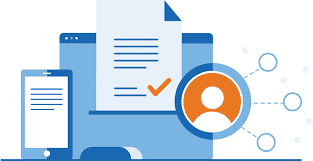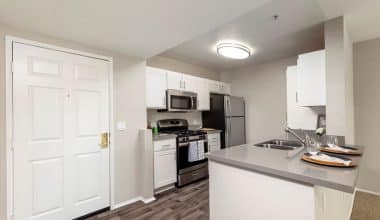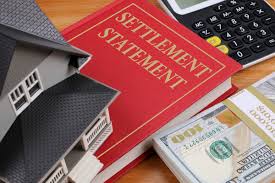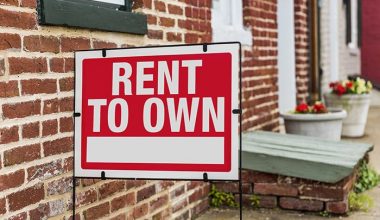Do you believe you could profit from a refinance? Of course, you could! A refinance allows you to modify the conditions of your mortgage loan, making it easier to pay your expenses or extract cash from your equity. In this article, we’ll go through the average closing cost to refinance a mortgage. Read on.
How Much Does a Mortgage Refinance Cost?
Your closing disclosure specifies exactly what you must pay at closing. Here are a few examples of refinancing closing costs:
Application Fee: When you apply for a refinance, some lenders will charge you an application fee. Even if the lender rejects your refinance request, you must pay the application cost.
Appraisal fee: Before refinancing, most lenders need appraisals. The majority of appraisers charge between $300 and $500 for their services.
Attorney fees: In some areas, an attorney is required to evaluate and file loan documentation. Attorney fees vary greatly by state.
Insurance and title search: When you refinance your loan, your lender may conduct another title search.
Closing expenses should amount to 2 to 3 percent of your loan principal. Depending on your lender’s criteria, you may be allowed to roll your closing costs into your loan balance. You may also be able to get a no-closing cost to refinance, which means you won’t have to pay any closing expenses upfront. You’ll have to pay them eventually. They are either added to your principal balance or swapped for a higher mortgage interest rate.
What is Mortgage Refinancing?
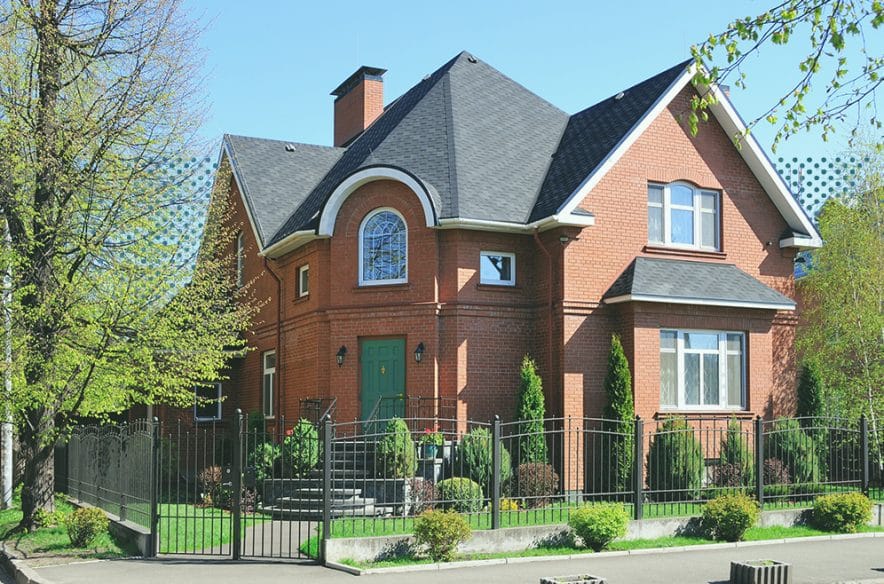
Mortgage refinancing is the process of replacing your existing house loan with a new one. You apply for refinancing just like any other loan, which includes a thorough review of your credit, income, employment history, and finances. A lender will order a home appraisal to determine the current market worth of your house as well as the amount of equity you have in it.
When you refinance, the borrowed money from your new loan is used to pay down your old debt. Most consumers refinance in order to secure a cheaper interest rate and lower their monthly payments or reduce the duration of their mortgage. A cash-out refinance allows you to borrow against the equity in your house, taking a share of the difference between what you still owe and its current value. On most loan types, many lenders cap cash-out refinancing at 80 percent of the total value of the home. Ideally, you’ll also get a lower rate as a result of the process. The equity in your house might be used to consolidate higher-interest loans or to renovate your home.
Should You Refinance Your Home mortgage?
When determining whether to refinance, there are numerous factors to consider. If any of the following apply to you, you should think about it. You can also utilize a refinance calculator to get an idea of loan alternatives and how a refi would affect your monthly payment. Here are a few reasons why you should refinance your mortgage:
#1. You’re Struggling to Make Your Payments
When you refinance to a longer-term, your monthly payments decrease. A refinance could potentially save you from having difficulty making your mortgage payments.
#2. You May Be Able To Get A Lower Rate
If interest rates are lower now than when you first acquired your loan, you’ll save money by paying less in interest. If your credit score is higher now than when you took out the loan, you may be able to negotiate a cheaper interest rate.
#3. You Wish to Be Free of PMI
Private mortgage insurance (PMI) protects mortgage owners against default. Most mortgages require PMI if you have less than 20% down at the time of closing. If you have more than 20% equity in your house, you can refinance and cancel your PMI.
FHA loans, which are underwritten by the Federal Housing Administration, are a little different. If you made a down payment of less than 10%, you must pay mortgage insurance for the duration of your FHA loan. Many consumers who purchase a home with an FHA loan refinance to a conventional loan once they achieve 20% equity and are no longer required to pay monthly insurance.
#4. You Have A Significant Expense To Cover
A cash-out refinance allows you to obtain a low-interest loan. If you have a large bill coming up or need to supplement your savings, a cash-out refinance is an option.
Read Also: HOW TO REFINANCE STUDENT LOAN: Step-By-Step Guide
What is the mortgage refinance break-even point, and why is it important?
When you’ll break even on your expenditures is an important factor to consider when determining whether to refinance your mortgage. The break-even point is computed by totaling up all refinancing closing fees and calculating how many years it will take to recoup those costs with the savings from your new mortgage payment against your previous one. Refinancing makes more sense if you want to stay in your home for a longer period of time than the break-even point; otherwise, you risk losing money.
How long do you intend to stay in your current residence, and why is this important?
Before refinancing, consider how long you intend to stay in your current house. Even if you have a lower interest rate, refinancing if you plan to relocate in a few years may not make financial sense because you may not have enough time to break even on closing expenses. Most experts agree that you should stay in your home for at least two to five years after refinancing, but you should perform your own break-even analysis to see what makes the most sense for you.
Next stages in refinancing
If you’ve crunched the numbers and determined that refinancing makes sense, it’s time to hunt for a refinance lender. Compare refinance rates and terms with your current mortgage servicer, as well as national banks, credit unions, internet mortgage lenders, and even a mortgage broker.
Make a point of getting everything in writing, including fees and interest rates. Lenders will provide you with a loan estimate that includes all costs and data about your new loan. Loan estimates are excellent tools for comparison shopping since they provide the most accurate image of which lenders would assist you in meeting your refinance objectives.
Average Mortgage Refinance Cost: Closing Fees and Interest Charges
In America, the average closing cost for refinancing a mortgage is $4,345. These fees may differ depending on the lender and the location of the mortgaged property. Furthermore, the quantity borrowed will influence the cost of the refinance. Refinances promoted with “no closing expenses” or “no fees” frequently include those charges in the new mortgage’s interest rate, the amount borrowed, or monthly payments.
Average Mortgage Refinance Cost
We’ve listed the most frequent fees below to help highlight the underlying costs of a refinance. We’ve also gone over some of the charges associated with refinancing in further depth. Here is a breakdown of the average cost to refinance a mortgage:
| Fees | Range | Average Cost |
| Mortgage Application Fee | $75 – $500 | $235 |
| Property Appraisal Fee | $225 – $700 | $480 |
| Loan Origination Fee | 0 – 1.5% of Loan Principal | 1% of Loan Principal |
| Inspection Fee | $175 – $350 | $255 |
| Survey Fee | $150 – $400 | $275 |
| Attorney and Closing Fees | $500 – $1,000 | $750 |
| Title Search and Title Insurance | $400 – $900 | $733 |
| Local Recording Fee | $25 – $250 | $138 |
| Reconveyance Fee | $50 – $65 | $58 |
Closing Cost For A Mortgage Refinance
Closing costs for a mortgage refinance are comparable to those for a new mortgage. Estimated refinance costs do not include property taxes, mortgage insurance, or homeowner’s insurance, which are normally required when purchasing a new house but may not be applicable when refinancing an existing property.
Local Recording Fee: To reflect the status of a new mortgage, local statutes demand revised deeds. This charge is determined by the township in which your property is located.
Reconveyance Fee: To surrender their interest in the property, the original mortgage lender may demand a reconveyance fee.
The following fees may be required in certain instances, but they may not apply in all cases.
| Fees | Average Cost |
| Homeowner’s Insurance | $650 variable based on property |
| Points | 1% of the Loan Amount reduces loan interest rate by ~0.25% |
| Flood Certification | $100 |
| Yield-Spread Premium | Approximately 0.25% of Loan Amount |
Homeowner’s Insurance: If you can provide proof of enough coverage for your home, you should be able to avoid paying additional fees for this.
Loan discount points and lender credit points are examples of points. These minimize the borrower’s overall or upfront costs.
Flood Certification: The National Flood Insurance Program requires this for homes that are located in designated flood zones. This levy does not apply to properties located outside of flood zones.
Yield-Spread Premium: This applies to borrowers who do their search through a mortgage broker and serves as a commission for arranging the transaction.
Average Cost for A Cash-out Mortgage Refinance
We assessed the average cost of refinancing a $160,000, 30-year fixed-rate mortgage, originated in 2011 at 4.45 percent, into a cash-out mortgage at a rate of 4.125 percent. We assumed that the amount borrowed for the cash-out mortgage is comparable to the amount borrowed for the original mortgage. Afterward, we determined that by refinancing the remaining balance today of $142,500 and cashing out $17,500 for a combined $160,000 in new revenues, we boost the overall interest expense for the new loan to $92,300 from $89,600, notwithstanding closing expenses.
You may want to perform a cash-out refinance if you have major expenses that you want to fund; intend to make substantial changes to your house, or take advantage of current interest rates while freeing up equity. While cash-out refinances appear like an intriguing hybrid solution, the “cash-out” element of the loan will add to the interest payments of the new mortgage.
Although we discovered that closing expenses for a cash-out refinance are similar to those for a regular refinance, interest rates for cash-out refinances are 0.12 percent – 0.25 percent higher on average and may be much higher for poorer credit scores.
A cash-out refinance is similar to a regular refinance in that the original mortgage sum is paid off. The new mortgage, on the other hand, may be divided into two parts: the amount that refinances the existing loan and the additional amount that covers any lump-sum payment you receive as a result of the “cash-out,” which includes closing costs/payoffs.
In Conclusion,
When you refinance, you must pay closing costs, just like you did when you took out your initial loan. Closing costs may include appraisal fees, attorney fees, and title insurance fees.
Closing expenses are typically 2 to 3 percent of the refinance’s value. If you’re having difficulties making your payments, need cash, or want to get rid of PMI, a refinance may be a suitable alternative.
Why do homeowners refinance?
Homeowners refinance for a couple of reasons: to cut their interest rate, adjust the term of their loan, consolidate debt, or withdraw cash from their equity.
How does refinancing work?
The first step is to determine whether you are eligible for a refinance. If you want to do a cash-out refinance, you must already have a considerable amount of equity in your house. Most lenders will not refinance 100% of your equity, so make sure you have enough equity to pay your expenses
{
“@context”: “https://schema.org”,
“@type”: “FAQPage”,
“mainEntity”: [
{
“@type”: “Question”,
“name”: “Why do homeowners refinance?”,
“acceptedAnswer”: {
“@type”: “Answer”,
“text”: “
Homeowners refinance for a couple of reasons: to cut their interest rate, adjust the term of their loan, consolidate debt, or withdraw cash from their equity.
“
}
}
, {
“@type”: “Question”,
“name”: “How does refinancing work?”,
“acceptedAnswer”: {
“@type”: “Answer”,
“text”: “
The first step is to determine whether you are eligible for a refinance. If you want to do a cash-out refinance, you must already have a considerable amount of equity in your house. Most lenders will not refinance 100% of your equity, so make sure you have enough equity to pay your expenses.
“
}
}
]
}
- Cash out refinance loan explained (+ requirements and tools)(Opens in a new browser tab)
- SECOND MORTGAGE: Definition, Rates and Requirements
- REFINANCING LOANS: Definition & How it Works (Detailed Guide)
- Refinancing Home Loan: Rates, Costs and All You Need
- Refinancing A Loan: What It Means & How It Works (Detailed Guide)
